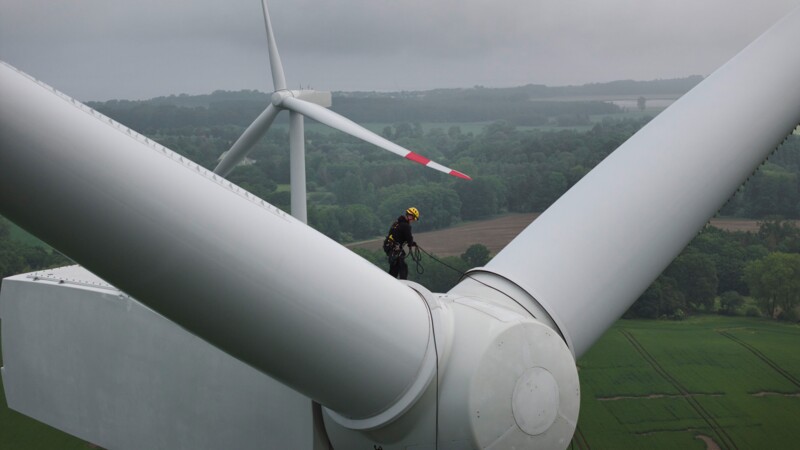This was echoed by Peter Tschentscher, Mayor of Hamburg, who stressed: "Global developments can only be achieved by joining forces and working together." As host of the sustainability conference, Hamburg can input practical experience as people from over 180 nations live in Hamburg. Smart framework conditions boost the opportunities arising from a multinational urban society while taking into account the ecological consequences of urban life. "More than half of the world's population lives in urban areas. They consume 80 per cent of the world's energy, are responsible for 70 per cent of greenhouse gas emissions and produce more than half of all waste," Tschentscher noted. Thus, global cities have a special responsibility and hold the potential to develop solutions for a sustainable future. "Hamburg is ready for this and committed in 2017 to consistently implementing the UN Sustainable Development Goals (SDGs)."
Fair AI, resilient cities and trust in the power of multilateralism topped the agenda of the recently-ended Hamburg Sustainability Conference (HSC) which comes just months after the first HSC last October. More than 1,600 delegates from 100 countries mulled possible solutions to the world's most pressing problems, which is more important than ever, according to Lars Klingbeil, Germany's Vice-Chancellor and Minister for Finance. He stressed: "The world is undergoing enormous restructuring. The balance of power in the global economy and in international political cooperation has been shifting for years. We must rebuild multilateral cooperation for the benefit of global citizenship. Multilateralism is the answer to global challenges."
Cities key to innovation
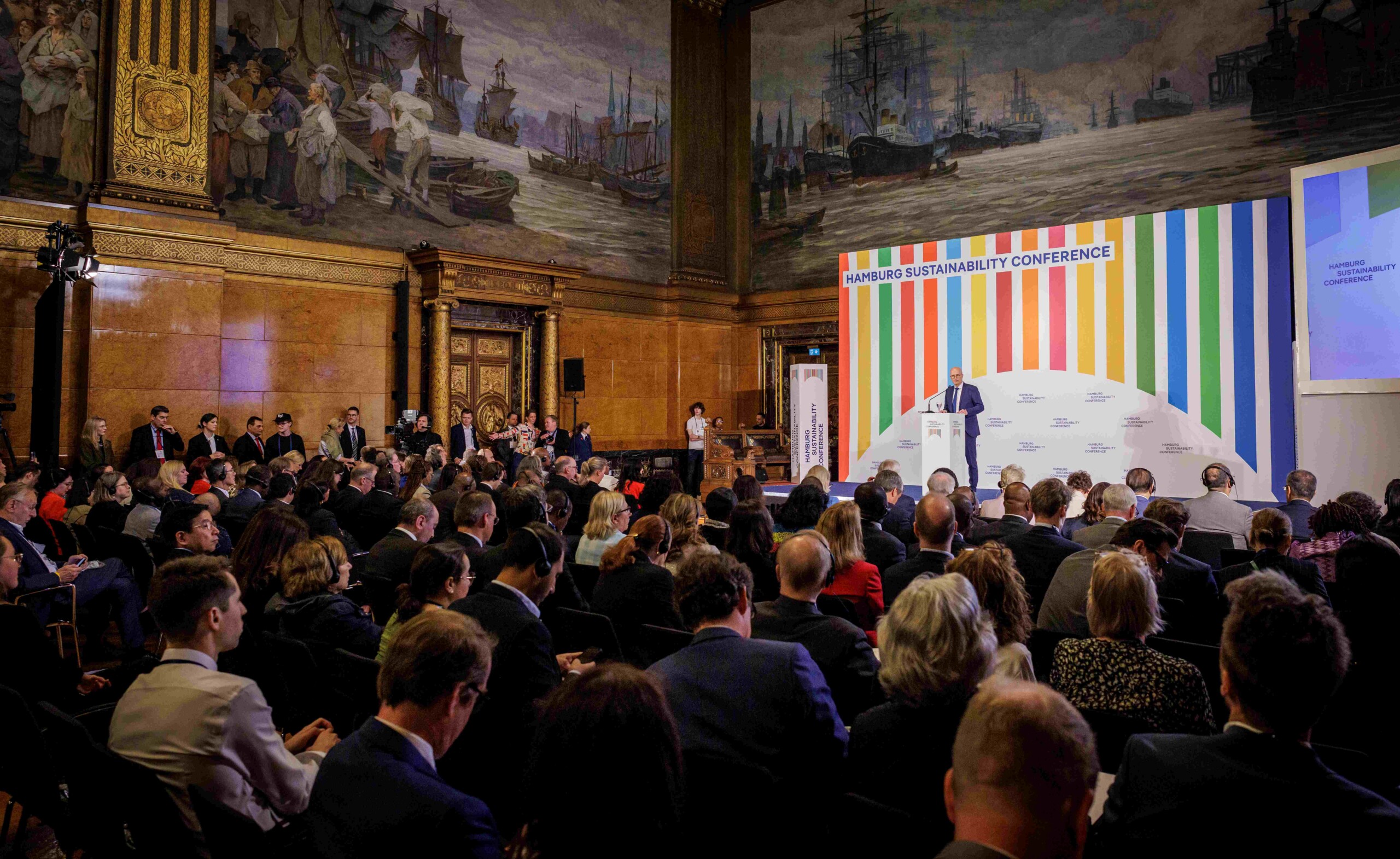
Resilience as catalyst of growth
In February, Hamburg also adopted a climate adaptation strategy to make the city more resilient and to counter extreme weather events such as heatwaves, droughts, heavy rainfall and storm surges. "More resilience means a better quality of life," said Tschentscher. Various panels on the future of urban area saw resilience as a catalyst of growth.

Water resilience required
Thus, investments in resilient structures benefit both the environment and the economy. Alois Rainer, Germany's Minister for Agriculture, stressed the importance of climate-adapted agriculture and saving water, and cited measures in Germany's National Water Strategy. Europe's cross-border approach is also notable, and added: "The EU is working on a water resilience strategy, which is due to be adopted shortly." The UN's Water Conference in December 2026 seeks to advance the sixth SDG of ensuring clean water and sanitation for everyone. Meanwhile, the Munich-based Vista Geowissenschaftliche Fernerkundung GmbH has come up with a technical means of counteracting water scarcity. "We use machine learning and AI for monitoring agriculture, smart farming, sustainability and climate change," said founder Heike Bach. By developing digital twins, savings of 20 per cent in water, energy and fertiliser can be achieved. "So far, we have been particularly active in the Global South. However, climate change means that we are increasingly focussing on the Global North," Bach said.
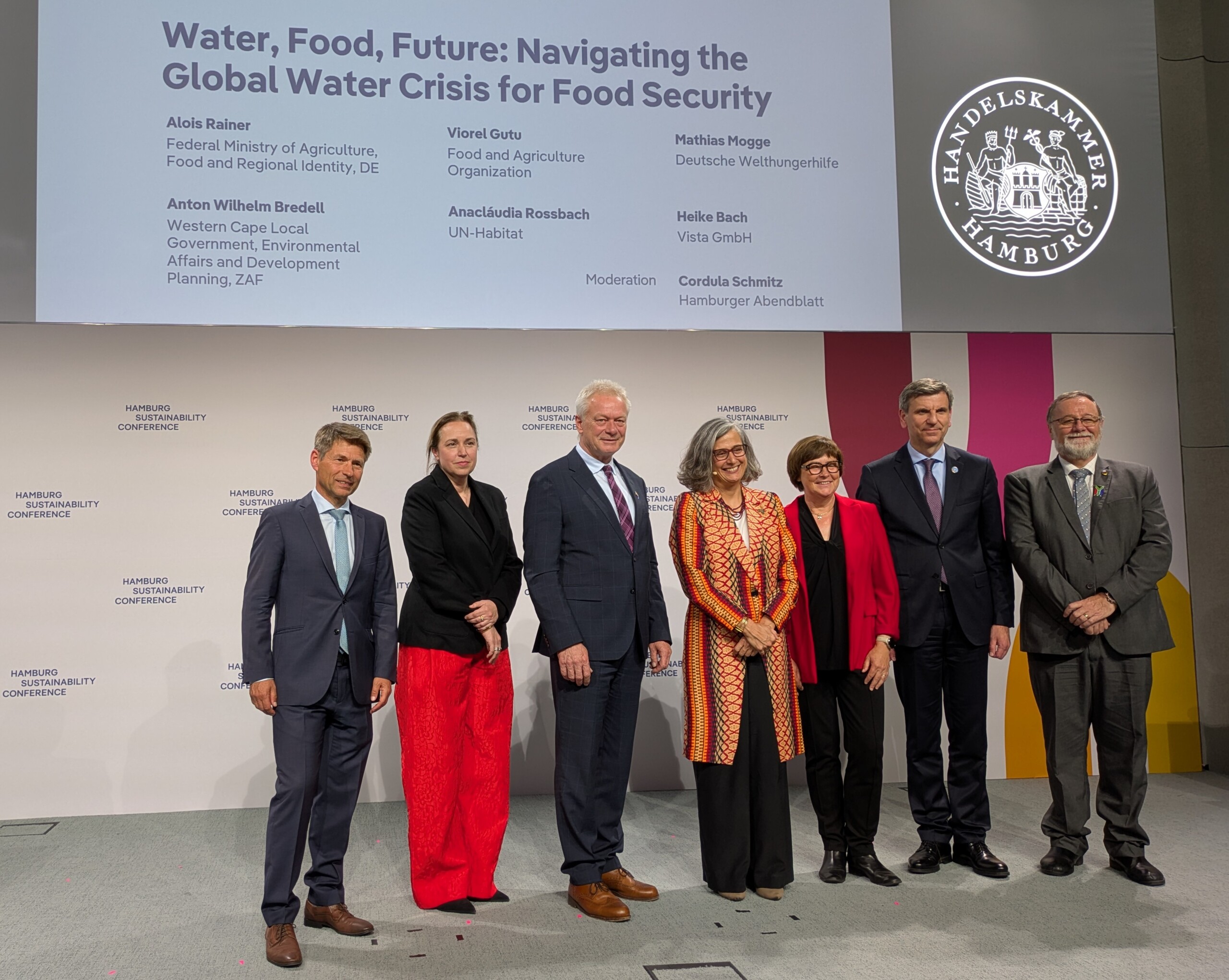
Hamburg Declaration on Responsible AI
AI is also being used in the Hamburg Metropolitan Region to boost source-conserving agriculture. The joint Smart Automation Systems and Services for Fruit Cultivation on the Lower Elbe (SAMSON) project, for instance, is developing digital twins for apple orchards in the Altes Land region. Blossoms in spring and the number and even the diameter of apples in autumn can be displayed precisely in just one click. AI holds enormous potential for agriculture, transport, health or the energy sector. However, the world's population can barely keep up with the rapid technological developments making the need for global agreements and regulations all the more pressing. Thus, the signing of the "Hamburg Declaration on Responsible AI for Sustainable Development Goals" during HSC proved a "real milestone", according to Achim Steiner, Head of the UN Development Programme.
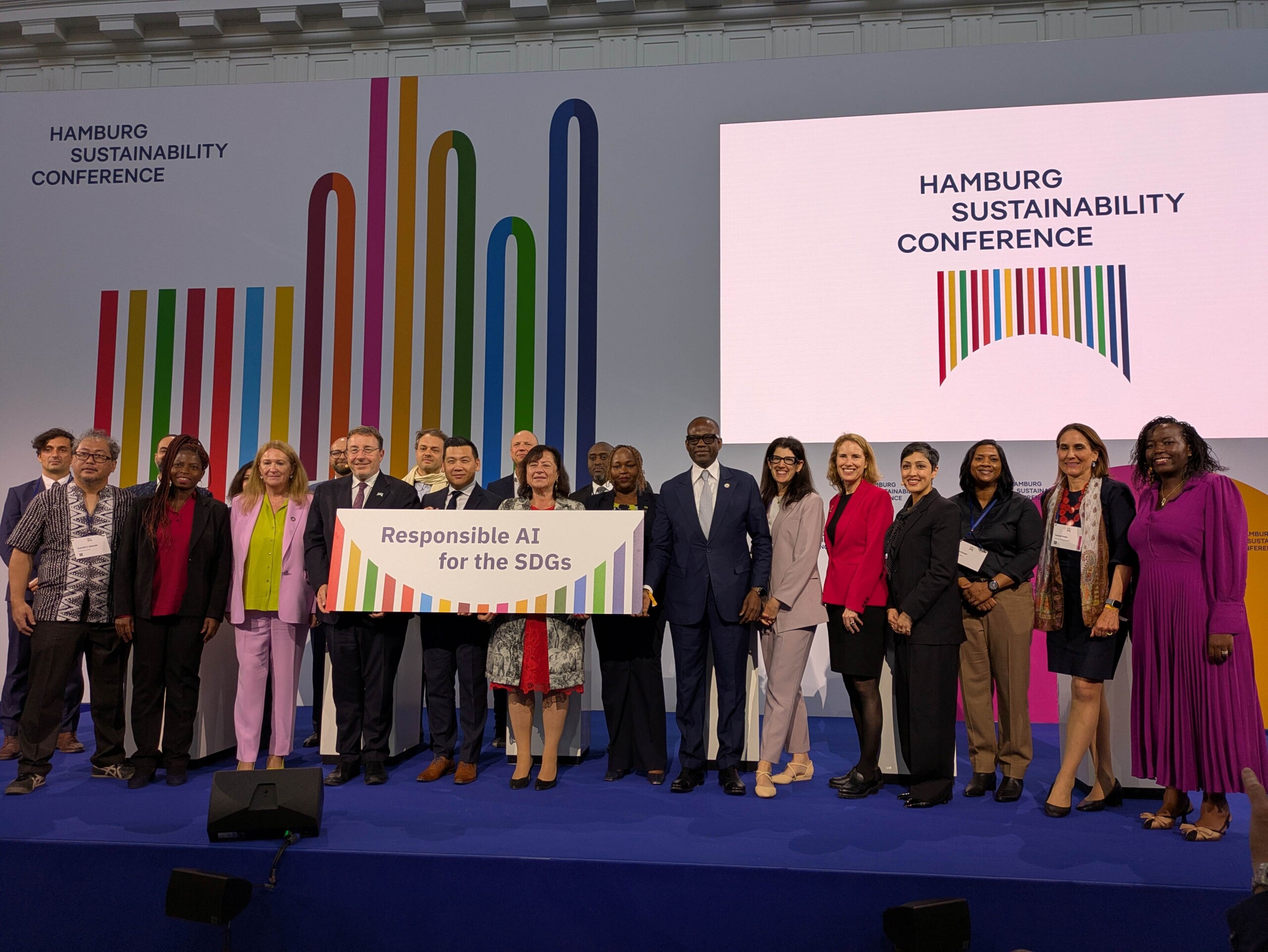
Alliances and agreements
The future of AI must be considered globally, he added. "This declaration means we recognise that AI can be used as a weapon or as a tool for humanity." Steiner expressed hope that the declaration, signed by representatives of more than 40 governments, private sector organisations, society and leading research institutions, will go a long way towards ensuring the latter. "The declaration is a key commitment to using AI responsibly, to improving justice, connecting communities, and reducing global inequalities. This second HSC marks a step towards the brand Steiner, stressed.
Efforts will now focus on substantiating the agreements before the next HSC on June 29-30, 2026. The Scaling Capital for Sustainable Development (SCALED) declaration of intent to mobilise private investment for sustainable development was also signed. A global alliance against inequality was also established to boost cross-regional cooperation, political talks, innovation, and public trust, with the aim of creating peaceful and just societies.
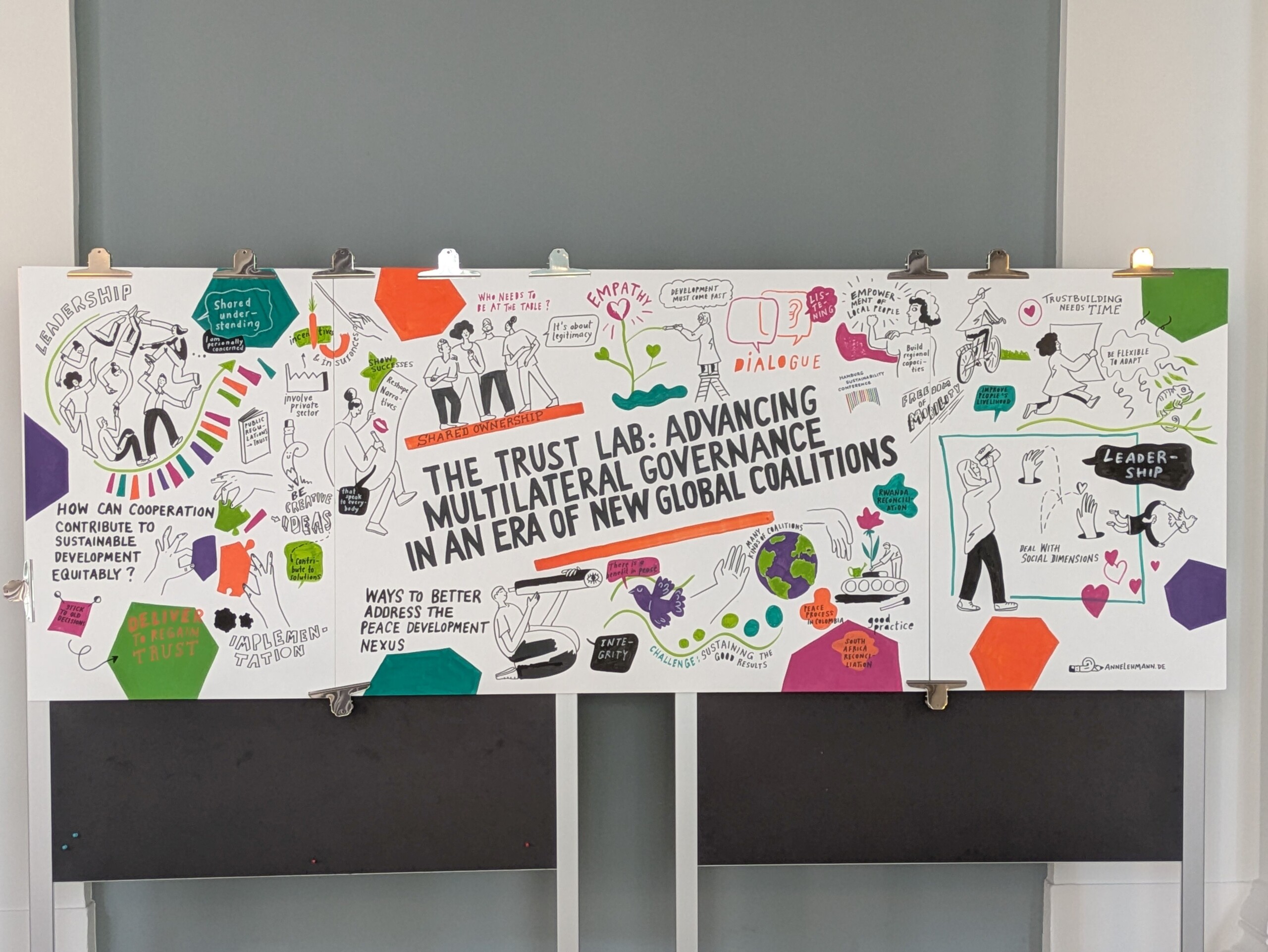
Making the impossible possible
Trust was a buzzword at HSC. During the opening panel, Reem Alabali-Radovan, German Minister for Economic Cooperation and Development, stressed the importance of trust-based talks and talking to each other rather than about each other. And Rebeca Grynspan, Secretary-General of United Nations Trade and Development (UNCTAD), called for more trust in multilateralism, which has been damaged by rising nationalism. However, the multilateral system needs to be rethought, according to Debapriya Bhattacharya, Distinguished Fellow at the Centre for Policy Dialogue (CPD), who stressed: "We need a multilateralism that includes everyone and is based on participation, openness and reliable rules." Asked whether he considers this utopian, Steiner begged to differ and noted: "Anyone who is really interested in the future and wants to get involved will find partners. And then the impossible becomes possible."
ys/pb
Sources and further information
Hamburg Sustainability Conference and Hamburg Sustainability Week
The next HSC will be held from June 29 to 30, 2026. Initiated in 2024 by the German Ministry for Economic Cooperation and Development (BMZ), the United Nations Development Programme (UNDP), the City of Hamburg and the Michael Otto Foundation, the Hamburg Sustainability Conference (HSC) is an annual event. This year’s HSC coincided with the Hamburg Sustainability Week. More than 100 events focused on “Planetary Talks” and “Planetary Sounds” to “Sustainability Speed Dating” and a sustainability workshop. The Hamburg Sustainability Conference gGmbH is backed by the Ministry for the Environment, Climate, Energy and Agriculture (BUKEA). Other partners include the Hanns R. Neumann Foundation, the Joachim Herz Foundation and the Hans Weisser Foundation.
More
Similar articles
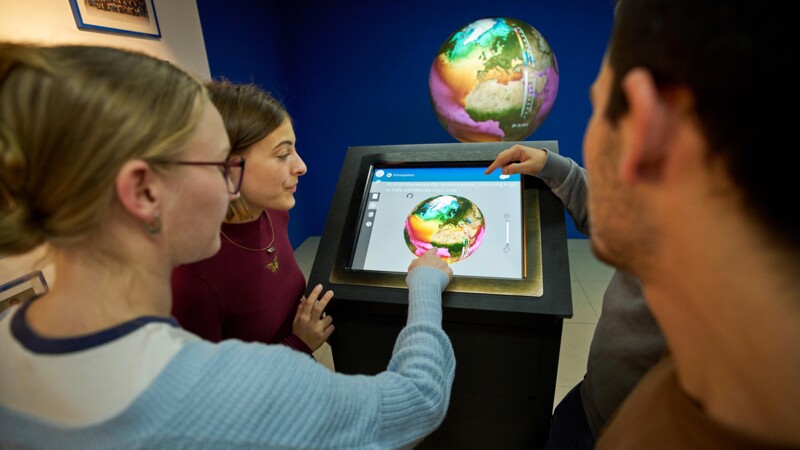
Max Planck Institute for Meteorology celebrating 50th anniversary
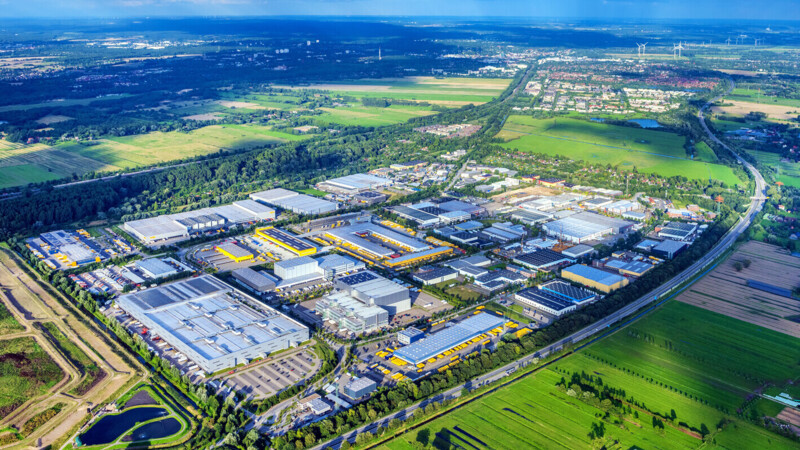
Top marks for Hamburg as an industrial centre

Information system offers new findings on climate change
